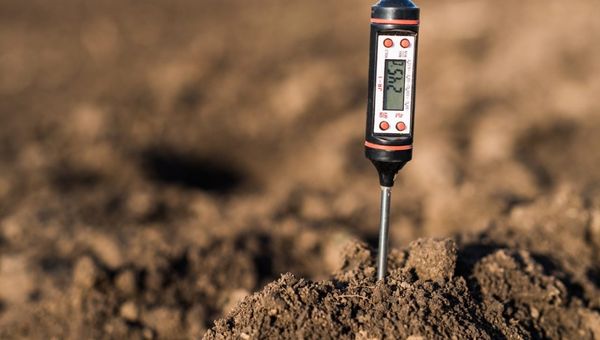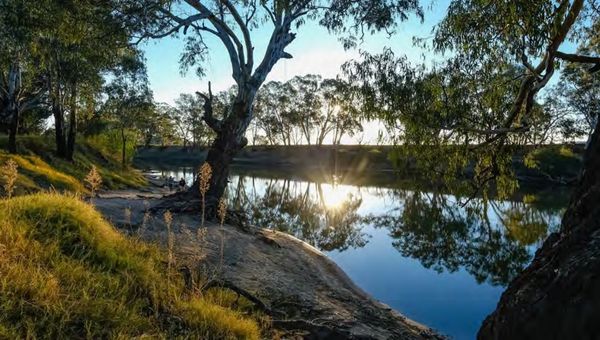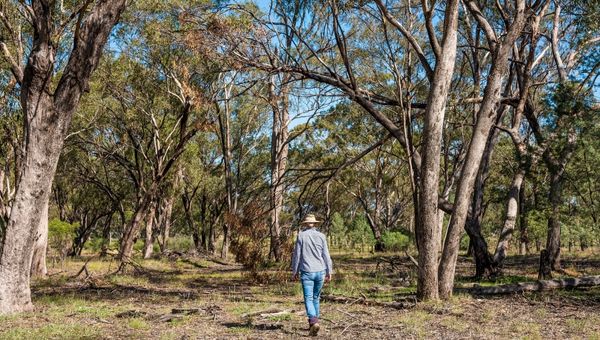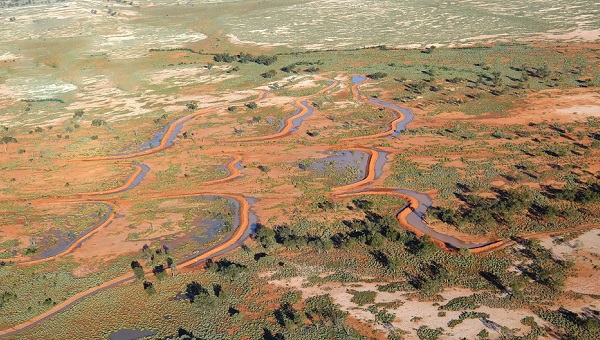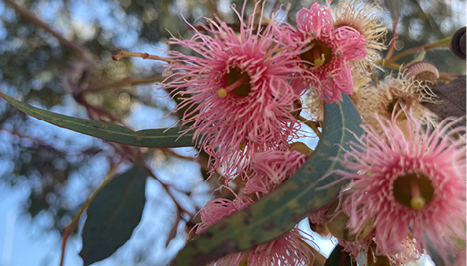Natural resource management
The people of NSW rely on the health of our natural resources and productivity of our landscapes. Australia's agricultural industries rely on sustainable water and vegetation management, healthy soils and biodiverse ecosystems.
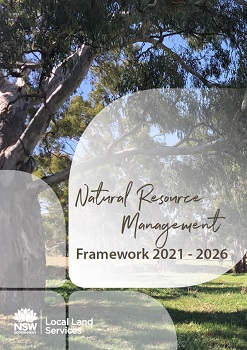 Natural Resource Management services support and enable land managers to better utilise and protect our natural resources - avoiding or reversing their decline, and maintaining land uses that are sustainable and productive.
Natural Resource Management services support and enable land managers to better utilise and protect our natural resources - avoiding or reversing their decline, and maintaining land uses that are sustainable and productive.
Effective natural resource management ensures that appropriate measures are in place to maintain and preserve our natural assets.
Local Land Services is committed to working with our communities towards sustainable land use and the protection of natural resources.
Read our Natural Resource Management Framework. PDF, 2402.08 KB
What is Natural Resource Management?
Natural Resource Management (NRM) refers to the coordinated strategies adopted for the sustainable utilisation of our major natural resources, such as land, water, soil, forests, fisheries, plants and animals. Effective Natural Resource Management practices build capacity to manage land through drought, flood, and climate variability, promote resilient business practices, and safeguard our landscapes and natural assets for future generations.
NRM Strategies for healthy landscapes
Whilst the priorities vary amongst regions and land management systems, the most effective natural resource management strategies for tackling the top threats to landscapes include:
- maintenance of minimum levels of groundcover and vegetation cover, and construction of vegetative or other structures to reduce runoff and improve soil condition
- strategic restoration, revegetation and better management of intact native vegetation to improve its resilience and safeguard habitat for plant and animal species (using genetically diverse, local and climate-adjusted species)
- restoration and better management of the riparian zone of rivers, wetlands and estuaries for improved water quality and flood resilience
- rehabilitation of gully and streambank erosion
- control of invasive species and diseases
- protecting sites that will act as climate change refuges
- managing native vegetation for conservation purposes
- the introduction of land management practices such as grazing pressure management, mixed-species pastures, effluent and fertiliser management.
Local Land Services Role in Natural Resource Management
Land managers are on the frontline of delivering environmental outcomes on behalf of the wider community, owning, managing and caring for a large proportion of the nation’s land.
Local Land Services works with land managers and community members to ensure they can confidently make informed decisions and take action to restore and maintain ecosystem function for healthy, thriving landscapes.
Our team supports land managers and regional communities to improve NRM practices through direct action and investment, delivering NRM services and programs such as:
- demonstration and extension events
- providing advice and access to technical information
- on-ground projects
- grants and incentives for new practices and technology.
We also help groups, individuals and organisations with partnerships and connections through:
- collaborations across private and public land
- coordination of effort locally and state-wide
- supporting networks and groups
- connections to our 130,000 customers.
We work with private land managers, public land managers, and our partners and investors to achieve productive and sustainable land use in NSW.
Our commitment to you
We are committed to supporting land managers to adopt improved NRM practices on their properties, by:
- Understanding land manager needs and aspirations, and tailoring our services accordingly
- Helping land managers realise returns from adoption of improved NRM practices
- Tackling the top threats to the health and resilience of NSW landscapes and catchments
- Championing opportunities for Aboriginal people and communities to care for Country and enhance contemporary land management practices
- Being a trusted service provider and broker of NRM partnerships.
Why get involved in NRM?
By getting involved in Local Land Services’ NRM services and programs you will receive the latest best-practice advice and information to manage your property sustainably and contribute to programs that tackle the priority threats to healthy and resilient landscapes and catchments in NSW.
More information
For more information on choosing the best NRM strategies for your farming enterprise or rural property, and our current programs, please contact your Local Land Services NRM officer by calling 1300 795 299.
Soils & Land
The foundation of sustainable land management and overall ecosystem health is soil management. Supporting healthy soils and landscapes is critical to resilient, profitable and sustainable farm businesses.
Waterways
Water management is an essential part of rural living. Efficient use of water can minimise costs and maximise the benefit to you, your property and downstream users.
Biodiversity
Local Land Services works with landholders, communities, and partner organisations to ensure a balanced approach to natural resource management and biodiversity conservation and enhancement in NSW.
Threatened Species
An estimated 1000 native plants and animals are currently at risk of extinction in NSW. Local Land Services delivers programs to support the recovery of threatened species and their habitats.
Natural Capital
Sustainable land management activities like carbon farming can enable land managers to diversify their income and make a return from the adoption of NRM practices.
NRM Plans
Each Local Land Services region has a strategic NRM plan that prioritises long-term action and NRM service delivery. Read your local plan today.
